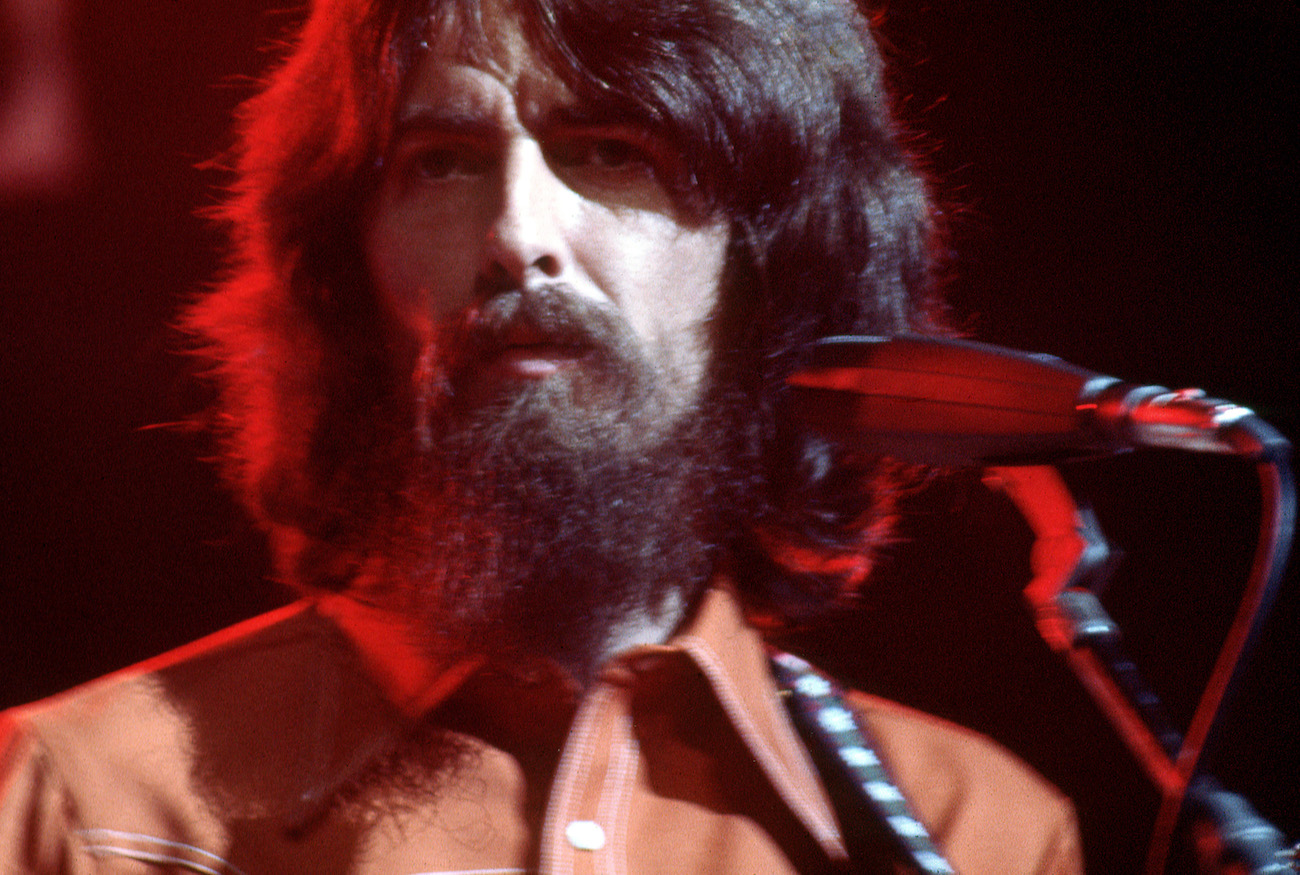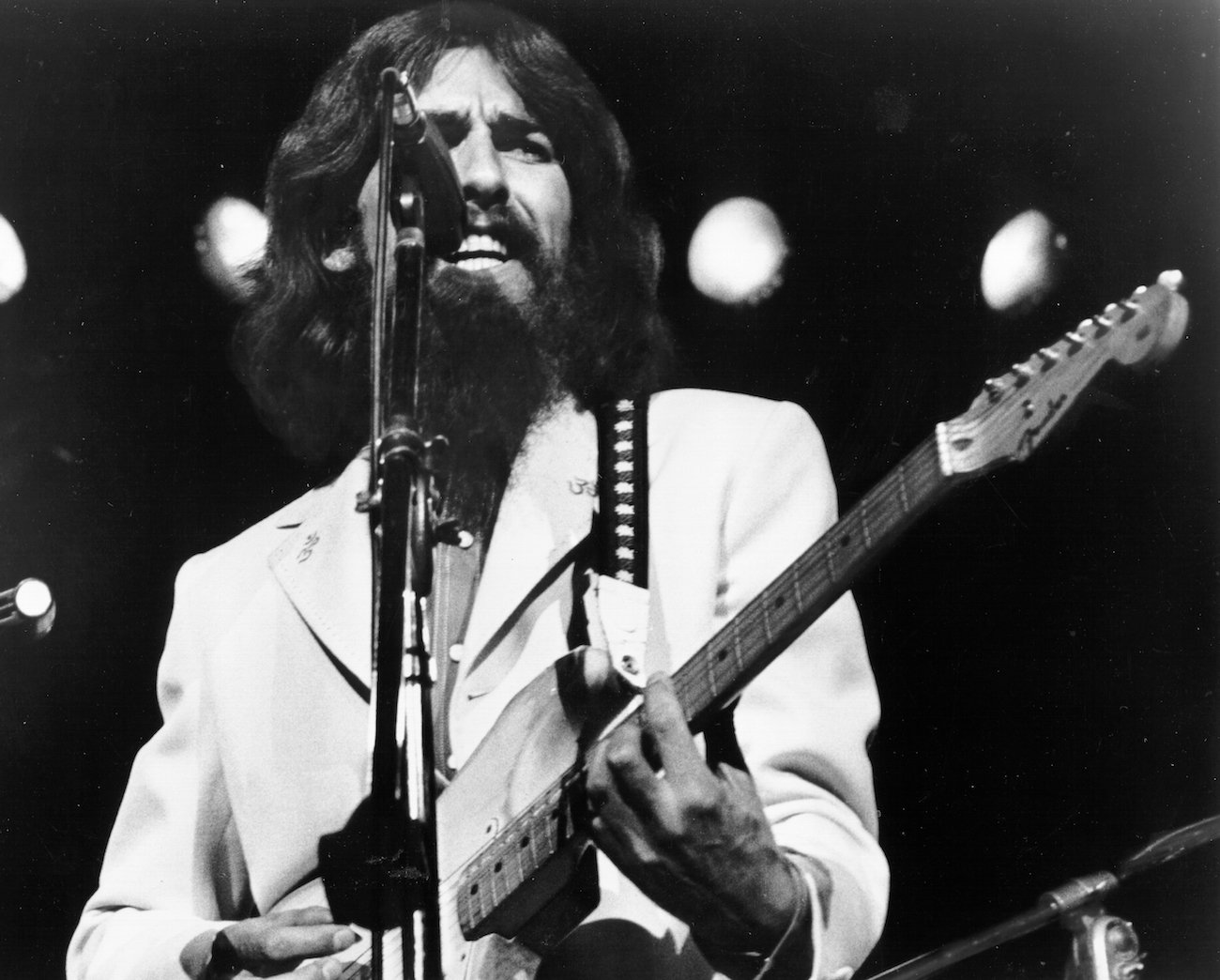
George Harrison Released ‘My Sweet Lord’ Because He Was Sick of ‘Young People Just Boogying Around, Wasting Their Lives’
Initially, George Harrison was afraid to release “My Sweet Lord” because of its religious theme. However, he chose to go ahead with it after thinking about all the people who might benefit from hearing a song about God.

George Harrison meant ‘My Sweet Lord’ to be a ‘Western pop equivalent of a mantra’
“My Sweet Lord” was religious from the start. In his 1980 memoir, I Me Mine, George wrote that the Edwin Hawkins Singers’ funk and gospel version of the 18th-century hymn “Oh Happy Day” inspired him to write the song.
According to Beatles Bible, George said, “It really just knocked me out, the idea of that song and I just felt a great feeling of the Lord. So I thought, ‘I’ll write another ‘Oh Happy Day’,’ which became ‘My Sweet Lord.'”
However, George inserted some of his own religion into the song’s lyrics. George repeats part of a Hindu mantra, “Hare Krishna… Krishna, Krishna,” and interposes it with the Christian “Hallelujah.”
In Here Comes The Sun: The Spiritual And Musical Journey Of George Harrison, Joshua M. Greene quotes George saying, “I wanted to show that ‘Hallelujah’ and ‘Hare Krishna’ are quite the same thing. I did the voices singing ‘Hallelujah’ and then the change to ‘Hare Krishna’ so that people would be chanting the maha-mantra before they knew what was going on.”
George meant “My Sweet Lord” to be “a Western pop equivalent of a mantra, which repeats over and over again the holy names.”
Greene wrote, “The lyrics declared George’s purpose in undertaking a spiritual quest. ‘I really want to see you,’ he sang. God was invisible to him but remained ‘sweet’ despite the anguish of their separation.”
“My Sweet Lord” spoke about George’s spiritual journey. However, he still feared its religious subject matter would offend some people.
One critic wrote that the song was “among the boldest steps in the history of popular music” yet with the potential to be “a fatal career move.” Greene continued, “The boldness was the naked emotion of George’s surrender to God. The gamble was whether fans would still accept him after realizing the depth of his
devotion.”
George released ‘My Sweet Lord’ because he wanted to show young people religion
Despite his trepidation about releasing “My Sweet Lord,” George went ahead with it. He hoped the song would provoke God-consciousness in the younger generations, who he felt were wasting their lives. Indeed, no one was putting religion into popular music.
“At that time,” George later explained, “nobody was committed to that type of music in the pop world. There was, I felt, a real need for that. So rather than sitting and waiting for somebody else, I decided to do it myself.
“A lot of times, we think, ‘Well, I agree with you, but I’m not going to actually stand up and be counted—too
risky.’ Everybody is always trying to keep themselves covered, stay commercial. So I thought, ‘Just do it.’ Nobody else is, and I’m sick of all these young people just boogying around, wasting their lives, you know.”
In I Me Mine, George wrote, “I would be committing myself publicly and I anticipated that a lot of people might get weird about it. Many people fear the words ‘Lord’ and ‘God’–makes them angry for some strange reason.”
George believed most people weren’t religious because of ignorance. It came down to the fear of the unknown. “It’s some sort of instinct in people,” George explained in Martin Scorsese’s documentary, George Harrison: Living in the Material World. However, his instinct to represent something he loved, God, won the battle.
In his memoir, George wrote that he didn’t want to hold back anymore. He wanted to show the world his love for God. “The point was, I was sticking my neck out on the chopping block because now I would have to live up to something, but at the same time I thought, ‘Nobody’s saying it; I wish somebody else was doing it,'” he said.
“You know, everybody is going ‘Be-bob baby’–OK it may be good to dance to, but I was naive and thought we should express our feelings to each other–not suppress them and keep holding them back. Well, it was what I felt, and why should I be untrue to myself? I came to believe in the importance that if you feel something strong enough then you should say it.”
Fans wrote George thank-you letters for releasing the song
George worried a lot about “My Sweet Lord,” but he didn’t need to. Fans loved the song. It quickly became George’s first solo No. 1 single. Clearly, the tune’s religious theme didn’t put people off. Some fans even wrote to George thanking him for releasing “My Sweet Lord.”
Greene wrote, “Once the record made it to radio, letters addressed to George Harrison started pouring into the London temple from all parts of the world.
“It seemed a lot of people had been waiting for someone to validate their own search for God, and from the day the record was released, thank you letters started coming and never stopped.”
George said he continued to get the letters. In the 1980s, George said, “I still get letters from people, so I know by the Lord’s grace I am a small part in the cosmic play.”
George had a massive part in the cosmic play. He brought God to popular music like no other.


